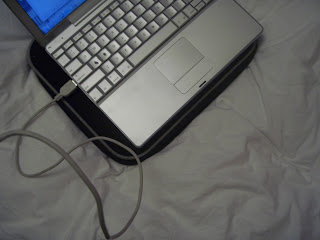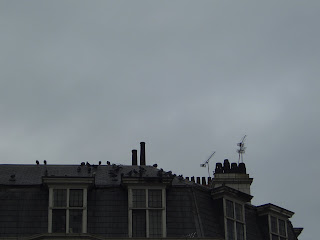
University of Sussex, 11-13 September 2007
Tuesday 11 September
9.30-11.45 Registration (with tea and coffee 11.15-11.45)
Lounge
11.45-13.00 Plenary 1: Peter Burke ˆ ŒRevisiting Popular Culture‚
Gallery Room 2
13.00-14.15 Lunch - Lounge
14.15-16.00 Session 1 ˆ Defining Popular Culture
Michelle O‚Callaghan (University of Reading) ˆ ŒThomas the Scholar‚
versus ŒJohn the Sculler‚: Defining Popular Culture in the early
Seventeenth Century.
Neil Rhodes (University of St Andrews) ˆ Orality and Popular
Culture: Thomas Nashe and Marshall McLuhan.
Lori Newcombe (University of Illinois) ˆ What is a Chapbook?
16.00-16.30 Tea and Coffee ˆ Lounge
16.30-17.50 Session 2(a) ˆ Popular Science and the Supernatural
Robert Iliffe (University of Sussex) ˆ Nature, Imposture and the
Supernatural in Early Modern Britain
Kevin Killeen (University of Leeds) ˆ ŒNo Spirit, no God!‚: Science
and Witchcraft in the Seventeenth Century.
Amanda McKeever (University of Sussex) ˆ Title tbc
Session 2(b) ˆ Popular Stereotypes
Victoria Buckley-Jennings (University of Sussex) ˆ ŒIf You Kill With
Powder‚: Representations of the Gunpowder Plot in Thomas
Dekker‚s The Whore of Babylon.
Matthew Dimmock (University of Sussex) ˆLibels, the Theatre and
Popular Xenophobia.
Catherine Parsons (University of Sussex) ˆ Jezebels and Whores:
Dangerous Women in Edwardian and Marian England.
18.00-19.00 Reception - Lounge
Wednesday 12 September
9.30-10.45 Session 3(a) ˆ Social History
Bernard Capp (University of Warwick) ˆ (Un)holy Wedlock: Bigamy
and Bigamists in Early Modern England.
Nick Tosney (University of York) ˆ Gamesters, Sharpers, and the
Contagion of Cheating‚ in Early Modern England.
Andy Durr (University of Sussex) ˆ The Society of Free-masons: A
Late Medieval and Early Modern Trade Fraternity.
Session 3(b) ˆ Early Modern Comedy
Andrew Hadfield (University of Sussex) ˆ Spenser and Jokes
Amy Orrock (University of Edinburgh) ˆ The Serious Matter of Play:
Bruegel‚s Children‚s Games and Gargantua‚s Games.
Andrew Hiscock (University of Wales, Bangor) ˆ The Popular
Cultures of Tudor Comedy
10.45-11.15 Tea and Coffee - Lounge
11.15-12.45 Session 4(a) ˆ Early Modern Reading Practices I
Femke Molekamp (University of Sussex) ˆ ŒOf the Incomparable
Treasure of the Holy Scriptures‚: Early Modern Readers‚
Responses to the Geneva Bible.
Elisabeth Salter (University of Wales, Aberystwyth) ˆ ŒThe Dayes
Moralised‚: Evidence for Experiences of Popular Devotional
Reading Across the English Reformation.
Louise Wilson (University of York) ˆ ŒWhat the Simple Say I Care
Not‚: Reading Practices and Popular Romance in Sixteenth-
Century England.
Session 4(b) ˆ Italian Popular Culture
Marta Moiso (University of Turin) ˆ Superstition, Magic and
Medicine in Early Modern South Italy. Tommaso Campanella
(1568-1639) and the Case of ŒTarantolati‚.
Leka Rozsa (Università Cattolica del Sacro Cuore, Milan) ˆ Urban Life in
the Renaissance Comedy in Italy
Victoria Sheridan (University of Toronto) ˆ Those Monstrous
Ornaments of Vanity: The Shoe, The Tendril and Silk Stockings in
Early Modern Venice.
12.45-14.15 Lunch ˆ Lounge
14.15-15.45 Session 5(a) - Early Modern Reading Practices II
Adriana Bontea (University of Sussex) ˆ Storytelling in Early Modern
France: the Case of Charles Perrault.
Nandini Das (University of Liverpool) ˆ A ŒCivil Conversation‚ of the
Planets: Conflating Humanist Astrology and the Italianate Tale in
Robert Greene‚s Planetomachia.
Sue Wiseman (Birkbeck, University of London) ˆ Popular and Elite?
Renaissance Texts of Transformation.
Session 5(b) ˆ Astrology
Stefania Crowther (Birkbeck, University of London) ˆ ŒBy Strange
Language in the Skies‚: Negotiating the Meaning of the Stars in
Popular Literature of the English Civil War.
Abigail Shinn (University of Sussex) Extraordinary Discourses of
Vnnecessarie Matter‚: Spenser‚s Shepaerdes Calender and the
Almanac Tradition.
15.45-16.15 Tea and Coffee ˆ Lounge
16.15-17.30 Plenary 2: Mary Ellen Lamb ˆ ŒGendering Peter Burke‚s
Amphibious Subject‚. Gallery Room 2
19.30 - Conference Dinner (location tbc)
Thursday 13 September
9.30-10.45 Plenary 3: Ian Moulton ˆ ŒPopu-love‚: Sex, Love, and
Sixteenth Century Popular Culture. Gallery Room 2
10.45-11.15 Tea and Coffee - Lounge
11.15-12.45 Session 6(a) ˆ Urban Popular Culture
Majella Devlin (Queen‚s University Belfast) ˆ Staging Women in the
Early Modern Metropolis
Alison V. Scott (Macquarie University, Sydney) ˆ Œ[P]ublish Your
Temperance‚: the Virtue of Urbanity and the Problem of the
Popular in Jacobean Entertainment.
Mira Assaf Veiga (American University, Beirut) ˆ Stealing the Show:
Representations of Vagrancy in Thomas Dekker and Thomas
Middleton‚s The Roaring Girl.
Session 6(b) ˆ Miltarism and the Monarch in Popular Culture
Katharine Craik (Oxford Brookes University) ˆ Shakespeare‚s
Soldiers
Tom Healy (Birkbeck, University of London) ˆ The Monarch‚s
Crowns: Patriotism and Popular Literature in Elizabethan
England.
Linda Hutjens (University of Toronto) ˆ The Disguised King in
English Renaissance Ballads
12.45-14.15 Lunch ˆ Lounge.
 The first spring meeting of the New York Medieval Liturgy Group will be on February 28, 2008. Lila Yawn (John Cabot University, Rome) will present "Toward a New Topography of the Italian Giant Bibles."
The first spring meeting of the New York Medieval Liturgy Group will be on February 28, 2008. Lila Yawn (John Cabot University, Rome) will present "Toward a New Topography of the Italian Giant Bibles."















